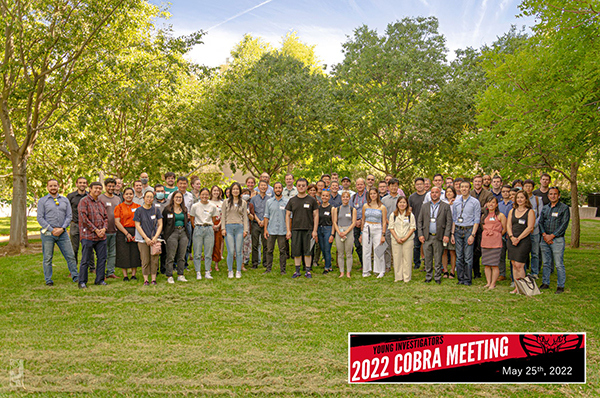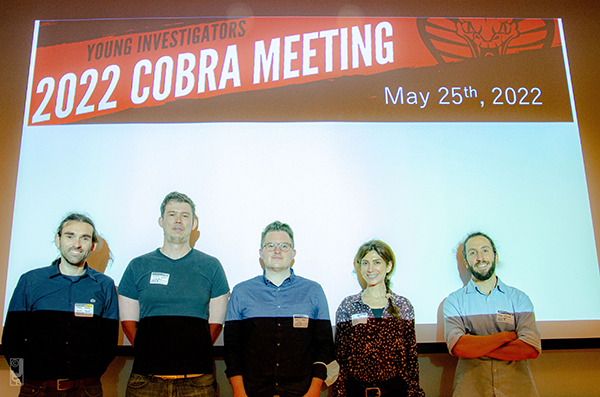COBRA Community Connects Nuclear Imaging Investigators in the Bay Area

The Bay Area Community Of Bay area RAdionuclide imagers (COBRA) meeting returned this year and was hosted at UC Davis on May 25, 2022. COBRA, originally conceived in 2006 by the late Bruce Hasegawa, PhD - brilliant investigator, educator and mentor at UCSF – and Ling Shao, formerly with Phillips and current director of algorithms development at RefleXion Medical, has provided a collaborative networking and educational venue for Bay Area researchers in nuclear imaging for several years.
"COBRA provides an informal venue where researchers can present their work outside their laboratories and common circles," says Javier Caravaca Rodriguez, PhD, member of the 2022 COBRA organizing committee and assistant researcher in the UC San Francisco Department of Radiology and Biomedical Imaging. "Our speakers range from PhD candidates to associate professors in five different academic institutions and other industry partners so that young investigators can learn from a multidisciplinary panel and disseminate their work beyond their usual collaborators at the same time. We wanted to reinforce inter-institutional communication and partnership by holding an in-person meeting. I think this is especially necessary after a global pandemic that disconnected us to some extent."

Overall, the tangible outcomes expected from the 2022 COBRA conference include:
- Establishing a network tool for Bay Area researchers interested in nuclear imaging. "We plan to organize a recurrent in-person meeting (at least once a year), maintain a website, and moderate a Slack group to allow the nuclear imaging community (providers and users) to easily find an ideal collaborator, and brainstorm about new ideas," Dr. Caravaca Rodriguez says.
- Boost interdisciplinary collaboration and publications. "Something I consider unique about COBRA is that we try to stress the multidisciplinary aspect of our work. We intend to reunite researchers of different backgrounds with nuclear imaging as the common ground. Typically these researchers would be disconnected due to belonging to different departments, institutions, and attending different conferences," continues Dr. Caravaca Rodriguez.
- More inter-institutional and locally led grants. "Data shows that multi-collaboration and inter-institutional projects are more likely to succeed," says Dr. Caravaca Rodriguez. "This translates into more funding for local research, with all its benefits."
Hosting institutions included UCSF, the Lawrence Berkeley National Laboratory (Berkeley Lab), Stanford University, UC Davis and UC Santa Cruz. The COBRA organizing committee hopes to host this event at least once a year, and ideally every six months to keep momentum and collaboration doing.
"COBRA was held annually until 2014. We want to recover that regularity and make it a staple every year hosted by different institutions in the Bay Area," says Dr. Caravaca Rodriguez. What a great way to continue the legacy of Dr. Hasegawa!
